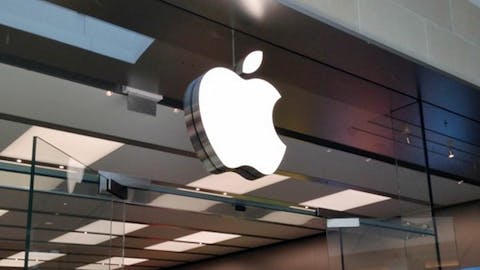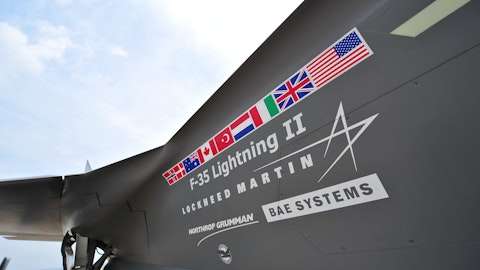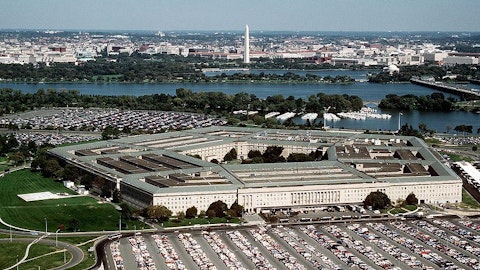The U.S. Pentagon is the world’s biggest “K-mart shopper.” From tanks to spy satellites to aircraft carriers, if it’s big, expensive, and high-tech, chances are that one day or another, you’ll find it listed on the Pentagon’s daily shopping list — published each day at 5 p.m. on the Department of Defense website.
Thursday’s list of Pentagon contracts awarded runs to $7.346 billion in value — but 83% of those defense dollars were spent on just one contract…
The U.S. Army does a lot of drugs
On Thursday, pharmaceuticals distributor McKesson Corp (NYSE:MCK) was awarded a $6.129 billion contract to pay for the “replenishment pharmaceuticals to furnish the Tricare pharmacy supporting 9.5 million active-duty service members, retirees and their dependents.” Actually, this wasn’t even a new contract. Rather, the Pentagon announced it as the exercise of the first (of three possible) 30-month-long options to renew a drug supply contract that is approaching expiration.
Interestingly, the original award under this contract, announced back in December 2012, put the value of the base contract at just $2.6 billion, even though that base contract was also 30 months long. This makes it hard to say just how much more money McKesson stands to make if the contract’s remaining two option periods are also exercised. $5.2 billion on top of the $8.729 billion already awarded? Or $12.3 billion more? Or it could be anything in between.
In other news
McKesson’s contract was by far the biggest awarded Thursday, but not the only interesting award handed out. In other news, (now-) privately-held Dell was among a half-dozen companies named winners of a $652 million multi-party contract to supply the Army with “information technology enterprise solutions.”
Raytheon (NYSE:RTN) won two contracts, a $152.8 million award to supply 53 APY-10 radar systems for installation in U.S. Navy and Royal Australian Navy P-8A Poseidon maritime patrol aircraft; and also a $56.4 million contract to modernize 34 Light Armored Vehicles for the U.S. Marine Corps.
And two smaller companies, Ball Corp (NYSE:BLL) and Leidos Holdings (NYSE:LDOS) each won a pair of Air Force contracts to perform “laser interaction testing” to determine “the effects of high power continuous-wave (up to MW Class) and high energy pulsed (kJ) lasers interacting with individual materials, multi-material subsystems, and fully functional targets,” and related work. Ball’s two awards total $32.1 million in value, and Leidos’s, $15 million.
Insider trading notes
Thursday’s news notwithstanding, trading activity at McKesson has been decidedly negative of late, with 24 reported insider sales in the past three months — and zero buys.
Raytheon, too, has seen more insider selling than buying over the past three months, at least in terms of the number of trades placed by insiders. Nonetheless, the number of shares bought slightly outnumbers the number of shares sold.
Ball’s insider sales and insider purchases are roughly equal, although the volume of shares sold outweighs that of shares bought by more than 30,000 units.
Last but not least, trends at Leidos show the reverse — significantly more buying than selling in terms of trades placed, but still more shares sold by insiders than bought.
This $19 trillion industry could destroy the Internet
One bleeding-edge technology is about to put the World Wide Web to bed. And if you act quickly, you could be among the savvy investors who enjoy the profits from this stunning change. Experts are calling it the single largest business opportunity in the history of capitalism… The Economist is calling it “transformative”… But you’ll probably just call it “how I made my millions.” Don’t be too late to the party — click here for one stock to own when the Web goes dark.





